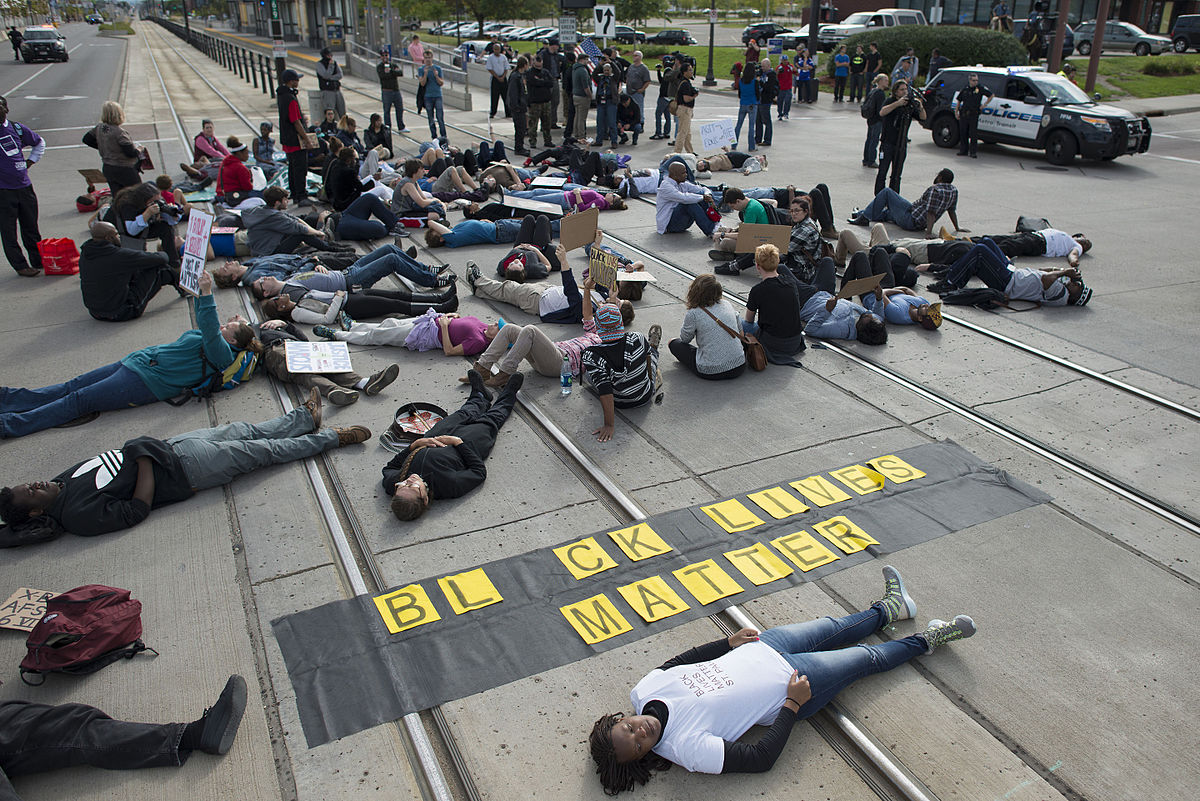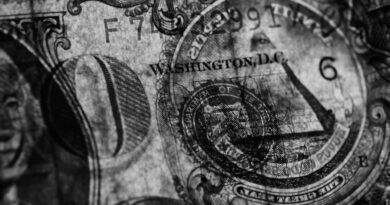From Relativism to Absolutism. How the Left has Wholeheartedly Embraced an Absolutist Rhetoric

In recent years the American Left has abandoned its trademark relativism and re-embraced absolutism. It is a poisonous, if unconscious, fusion between the historical Puritanism of the Pilgrims and the nihilism of Friedrich Nietzsche.
Marek Jan Chodakiewicz
According to my former colleague at Patrick Henry College, political scientist Mark T. Mitchell, Power and Purity: The Unholy Marriage that Spawned America’s Social Justice Warriors (Washington, DC: Regnery Gateway, 2020), present day witch hunters draw on the zeal of religious fanatics but are ultimately driven by the Will to Power.
After the so-called “collapse” of Communism, the Left shrewdly resorted to moral relativism to deflect any criticism for its crimes. The tactic has served its purpose and now the revolutionaries can return to their absolutist strictures with glee. No longer obfuscating and relativizing, the Left has wholeheartedly embraced an absolutist rhetoric. Its narrative totally rejects our past and depicts any opposition to the Leftist project as “evil,” pure and simple. Nothing is relative anymore. According to Mitchell, the absolutism is our Puritan inheritance, however unconscious, beating the drums of the “social justice warriors.” At the same time, the radicals pursue a method that is eminently Nietzschean and originates from the Will to Power playbook. The objective is a total, revolutionary destruction of our culture and, ultimately, the United States of America as we know it, to take power here.
Mitchel points out that “True politics requires a common culture with a common set of assumptions about human nature and the social order” (p. 134). In America that is no more. We are a house divided. The witch hunters are in search of purity; they want to achieve it through the fires of a revolution. “They are expressing not moral relativism but supreme moral confidence” (p. 35). The author warns us that “The ascendancy of radicalism on the left is a threat to American society… These activists are willing to take extreme measures to achieve the paradise of justice and equality of which they dread… Power may in fact lie at the heart of the story or at least be an indispensable feature of the tale” (p. 5-6).
I am usually skeptical about one-trick pony theories, but Mitchell definitely has a point, and puts it across most persuasively. According to him, America is no longer a Christian nation. Instead, it is a largely secular, post-modern one. However, the reflexes, habits, and arrangements socialized and inherent in us by centuries of Christian imagination and custom remain here. “However emphatic their atheism, they cannot cleanse themselves of their residual Christianity” (p. 116). We may be running spiritual fumes, but they are still post-Christian ones. Yet, they have turned toxic in their secular absolutism.
The “social justice warriors” cast themselves in black and white terms. They are saviors and crusaders; their detractors are evil, perhaps satanic (if Devil existed). “‘Woke’ faculty members imagine they are powerful agents of liberation, justice, and equality” (p. 117). They fight in the name of “tolerance” and “democracy” and “equality” and “rights” On the other hand, Mitchell stresses, “those who stand in the way of these noble ideals are racists, homophobes, fascists, or just plain evil” (s. 37).
How to overcome all this reactionary resistance to social justice? Let Nietzsche show the way. As Mitchell explains it, endowed with the inexorable Will to Power, the Superman (or Overman) will move “beyond good and evil” and assert himself (or herself) over anyone who stands in his (or her) way. This assertion of the Will to Power has even been taking shape in a new and exciting way: transhumanism, the fusion of machine and man. This perfect creation, of course, will enslave the rest of humanity in an algorithm driven culture of “mental dependency.” Mitchell is straightforward: “This is servitude masquerading as freedom” (p. 97).
Nietzsche has instructed the radicals how the weak can overcome the strong. But first the revolutionaries must wax in strength. They must return to our pre-Christian roots. We had been Supermen once: warriors and conquerors. Particularly, as Mitchell reminds us, it was the triumphant Nordic men (not really women though), free to exercise their will and impose it on others. Through them, might was made triumphantly right. They were unencumbered by any so-called morality. The Dionysian self ruled unfettered.
Then the Jewish people entered the fray. They were weak; they abhorred war; their non-martial and “priestly” skills disadvantaged them against the mighty wielders of the Will to Power. But the Jews insidiously wanted power for themselves. So they decided to trick us, according to Nietzsche as channeled by Mitchell. A gigantic plot was hatched, a massive deception operation launched. The Jewish weaklings rejected and crucified Jesus and, at the same time, spread his gospel of love. Love thy enemy, they preached. Peace. Cooperation. Solidarity. The weak shall inherit the earth, and all that nonsense, scoffed Nietzsche. As Mitchell synthesizes it, “The priestly people did the unthinkable: it discovered a way to triumph over its adversaries, not by force by audacious cleverness, devising a means by which its masters would willingly submit to its dark and unnatural desires.” Nietzsche teaches how they insidiously used the crucifixion and the love to guilt the warrior elites into emasculation by spreading Christianity all over the West. Christianity brought with it the moral categories of good and evil. Thus, the weak triumphed over the powerful. “The weak invented ‘evil,’ and their motive was the will to power, which is at the heart of all motives” (p. 28).
As a result, as per Mitchell’s synthesis, “the victory of Christianity produced the victory of the slaves and priests – both painfully impotent – who through malevolent treachery convinced the powerful to submit to the ideals of Christianity” (p. 29). The weak controlled the new religion and pretty soon its rules infused laws. Thus, through deception, the weak made laws to protect themselves from the strong. The weak therefore overcame the strong and have dominated us by creating a false matrix of morality, which Nietzsche convinced himself he had discovered.
The death of God has allowed all of this to happen. But the method of the weak remains constant. The matrix keeps getting updated, to fit the ever changing circumstances. Now rampant in its secular emanation, it is relativism in the service of the Will to Power.
Nietzsche has further taught that only the most ruthless executors of the Will to Power deserve to be on top; they must drive “the herd,” that is the common people who have no such reflex to dominate, before them in their swinish multitude.
Mitchell argues that this is precisely the paradigm that “the social justice warriors” deploy against us in a secular form now. “The same is psychological dynamic is at work in the attempt by the weak to assert themselves through identity politics and thus extricate themselves from the pain and misery of being subject to another” (p. 54). They aim “beyond good and evil” and are convinced that a sheer Will to Power shall bring them victory. Smash “white privilege” and sky is the limit!
Words are your best weapons of the revolution: Weaponize the language! According to Mitchell, “Reason, truth, and grammar all must be reconceived… Language as power. Words as weapons. A rejection of rationality” (p. 78-79). This pretty much describes the Will to Power behind political correctness and speech codes proliferating in American universities.
Further, as Mitchell perceptively notes, make sure to reject and stigmatize classical education, “characterized by a pursuit of the good, the true, and the beautiful” (p. 110), while promoting “modern” propaganda. The political scientist laments: “The entire landscape of higher education appears to be the scene of a sweeping victory for Nietzsche. We have gotten beyond good and evil; we have rejected the notion of objective truth, and we have come to believe that beauty is nothing more than individual preference” (p. 112).
Buttress it all up with “new and exotic horizons of sexual activity” (p. 87) and we are almost home. Revolution is war on nature. That is until all comes crashing down and new reality asserts itself. Then it is plain to see for everyone: the triumph of the Will. “And so the logic of the will to power is laid bare: unfettered pursuit of desires without the constraint of pity – even pity for oneself” (p. 94).
And it is all nonsense. Cosmos has a moral structure ordered by God. The structure is predicated on the Truth which is Divine Salvation. Without God, having moved “beyond good and evil,” we are in an ethical desert. Mitchell is quite clear about this: “There are no moral grounds for denouncing racism, poverty, injustice, or the violation of human rights… In short, the moral demands of social justice warriors are undermined by their metaphysical skepticism” (p. 122).
Nietzsche proclaimed infamously that “God is dead!” Reason and science allegedly killed the Lord. But “if we rid the world of God, we also dispense with Christian morality… The two stand or fall together” (p. 27). Therefore in the Nietzschean cosmology there is no truth and no moral universe. Anything goes and the strongest win. It is a sordid vision the Left endeavor to hoist on us. Hence, according to Mitchell, “Nietzschean Puritanism is incoherent, full Nietzscheanism is unlivable, and Christianity requires submission to a will greater than our own and to moral standards we did not establish” (p. 130).
Our defense against the juggernaut of the revolution is faith. The political scientists stresses it in a straightforward manner: “Christianity is the enemy of identity politics precisely because one of its central features is forgiveness, which identity politics cannot tolerate. Christianity seeks to reverse the will to power – expressed in identity politics as the will to inflict pain – and replace it with the will to forgive rooted in love for one’s neighbor” (p. 57). Well said.
What is missing from Mitchell’s inquiry is that Nietzsche merely endowed the Left with a new vernacular to express millennial fanaticisms. But the issue is as old as the world. As Eric Voeglin has argued, the revolutionary phenomenon throughout the ages is simply an emanation of Gnosticism. It goes something like this: We are the anointed ones. We have discovered a secret way that will bring us to perfect justice and equality, i.e., paradise on earth. Follow us obediently or perish. All who stand in our way must be swept away. We are all equal, of course, but some animals are more equal than others by virtue of possessing secret knowledge that leads us to our Nirvana. Since we “objectively” know the future, we hold the keys to the Shangri-la. We shall never stop.
Let us be fair. What the author dubs “Puritan” in particular is, in essence, merely heretical in a general sense. This sort of “Will to Power” characterizes all antinomian Gnostic sects, not just in Christianity, but also in Judaism or Zoroastrianism. In medieval times, as Norman Cohn has argued persuasively, it was the Taborites, Free Spirit followers, the “Saints,” and others who walked on the shining path toward paradise on earth achievable allegedly through sheer Will to Power. Jan van Layden’s anti-Trinitarians of Muenster and England’s Fifth Monarchy men followed in their footsteps propelled by the same zeal, according to Erich von Keuhnnelt-Leddihn. The Sabateans in the Ottoman Empire shared many of their sick fantasies and the method to fulfill them. Likewise, the Will to Power inspired the Communists and National Socialists (Nazis). An identical animus drives the ghulat (extremist) orientations of Islam, the Caliphatists of the Islamic State and Al Queda for example. The refrain coming from all of them is “We are all Nietzscheans now.”
Mitchell is a clarion voice of moderation, which should urgently be heard. But his solution – to revert to civility and debate, and, above all, “a return to historical Christianity” (p. 130) – sounds out of tune with the revolutionary drums of the Nietzschean post-religious fanatics. The author will be shouted down in academia; and he will be ignored by the media. Can’t we just get along? As lovely a message as it is, the compassionate plea may not be enough, however, in this day and age. Instead, one should be pro-active in defense against the Will to Power. Faith is the key. However, faith is a gift; thus, it is a value that can be passed on: through passive example, gentle persuasion, and active fight.
Mitchell himself admits that “we are at a crossroads” (p. 34). Perhaps then the author should start calling for a crusade instead of resigned passivity and forlorn appeals to civility. Indeed, we can hear echoes of impatience in his voice: “Perhaps the only choice really is as stark as this: Nietzsche or Christ, Dionysus or the Crucified, the will to power or the will to truth” (p. 137).
Everyone’s favorite Will to Power character Adolf H. did not get the message until everything came crashing down on his head in Berlin in 1945. I doubt that “the social justice warriors” will suddenly come to their senses or go gently into the night. Why should they? They are winning so far. Until we wake up, we shall not be up to the challenge. Power and Purity is a compelling and rigorous intellectual cri de coeur in our journey of self-awareness. It may yet become a cri de batallie or, in the American context, if you prefer, a rebel yell. Perhaps what will stop the heresy is a bit of Schumpeterian destruction, pronto. That should be absolutist enough on our part.
We thank prof. Marek Jan Chodakiewicz for sharing this article.



